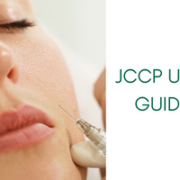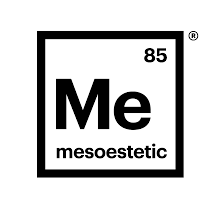If you are a medical professional who is looking to grow your clinic or personal brand, social media is a great way of achieving this. We will explore the ways in which you can use social media to grow your clinic.
Content is so important when it comes to social media. You should be posting inspirational content that your followers and target audience can engage with. This could be posting images of real-world results, before and after treatment images and videos or blog posts. Think outside the box when it comes to content. You don’t know how it will do if you never post it. If your clinic has a blog, make sure you are posting frequently. In terms of blog content you should post, this can be anything from relevant treatments for your patients to specific industry news to attract people’s attention.
Make your social media posts personal
Your social media posts should be personal. That means you should use your brand voice and try to give a more personal feel by using the name of your company or clinic. You can also incorporate your branding, logo and colour scheme into each post. More importantly, your posts should be directed at an audience and should be authentic. Your audience is more likely to resonate with your content this way.
Make sure your content is eye catching
People scroll through social media quickly so it is important to capture their attention. It is important to have photos that are high quality, clear and easy to see. When posting photos on social media platforms you should be using the ideal size image for that platform. This will help your content with the platform algorithms. You should also be using all of the features of the dedicated social media platforms you are using. For example, Instagram has stories, reels and products that you can utilise for your business.
Taking good photos is an art form in itself so consider hiring someone who has experience with this or take some photography classes yourself! Try using different angles and perspective when taking your photos and videos – this will help make them look more interesting! You can also try adding filters to make your images pop! Use eye catching titles for your posts. This will encourage others to click through and read about what you’re sharing so they know exactly what it’s about. When you do this you do not want to be misleading your audience as this will impact you negatively.
Use a call to action in your content
Add a call to action (CTA) button to your Facebook page – Instagram is good for posting real world results but Facebook is great for converting potential customers into paying customers! CTAs are buttons that direct users to a specific page on your site, usually one where they can purchase products or services. They’re an easy way for you to convert viewers into paying customers! If you have a Facebook page, make sure it includes a CTA button that links back to your website’s homepage. This way, anyone who clicks the button will be directed straight there and ready to start shopping as soon as they arrive at your site.
Target your posts through ads
Use targeted ads or boosted posts – With targeted ads you can target the right demographic, people who may be interested in the treatments you offer and are within a close proximity of the clinic. With Facebook’s ad platform, you can target people based on their age, gender, interests and location. You can also target people who have visited your website or blog. The more specific your targeting is to what you have to offer then more likely it will convert into a visit from someone looking for your services.
Create content regularly
You should be creating new content on a regular basis. Although you may not see results overnight, by posting on a regular basis you will see your following grow. This organic growth is so important as it provides you with a community. To be successful with social media, you need to post regularly and be consistent. If you’re not consistent with your posts, people won’t know when and how often they should expect updates from you.
Social media to grow your clinic
Social media is a great tool for brand awareness. This can be used to reach new customers and promote your clinic, as well as educate people about the treatments you offer. It’s important to use social media in a way that makes sense for your business. For example, if you’re running a clinic, posting pictures of cute dogs or telling jokes might not be the best idea for reaching new patients; instead, sharing articles about industry news, updates and tips (or any other relevant content) would be more appropriate.
We hope you have found this article helpful and informative. Social media has been proven to be one of the best ways to grow your business and we have seen some incredible results in the aesthetic industry from social media. For more information on business and marketing, view our Aesthetic Knowledge Hub for more information and delegates frequently asked questions all around business and marketing in the aesthetic industry. If you have any questions or are looking for more information on how to grow your clinic’s social media presence then please contact us today and our team can help.













